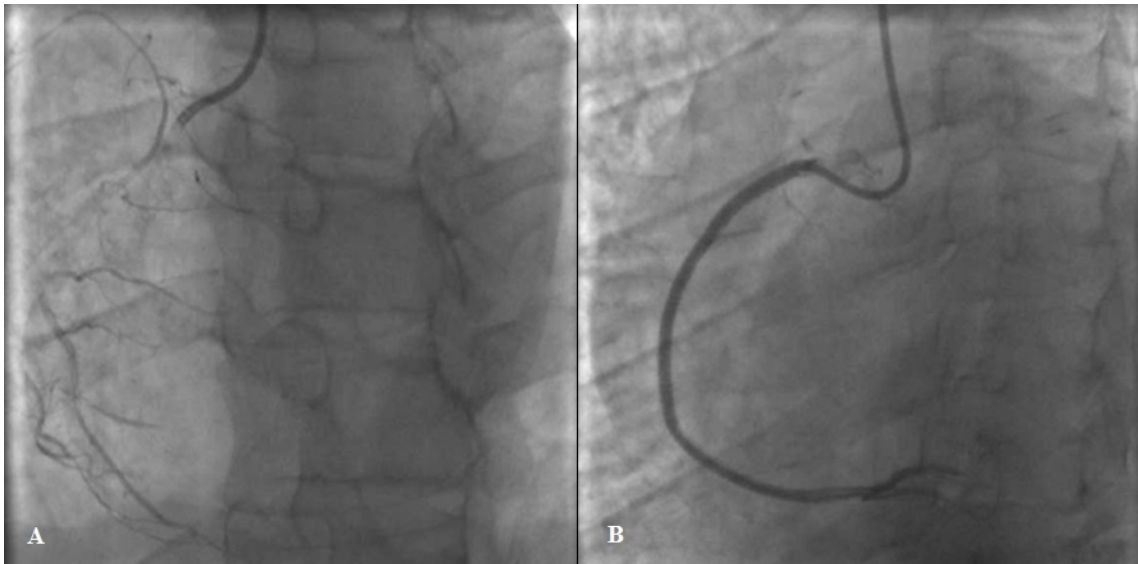
Karina Brizickaja1, Eglė Tamulėnaitė2, Olivija Gustienė2
1 Faculty of Medicine, Medical Academy, Lithuanian University of Health Sciences, Kaunas, Lithuania
2 Department of Cardiology, Lithuanian University of Health Sciences, Kaunas, Lithuania
Abstract
One of the causes of acute myocardial infarction in young adults without major cardiovascular risk factors is myeloproliferative neoplasms. Essential thrombocythemia (ET) is a clonal myeloproliferative neoplasm characterized by thrombocytosis with a tendency to develop thrombosis and hemorrhage. About half of patients with ET diagnosed at a young age are asymptomatic, and only about 5% of patients are diagnosed with ET due to major thrombotic or hemorrhagic events. We present the case of a 37-year-old previously healthy male patient who presented to the hospital with acute anterior ST-segment elevation myocardial infarction. The patient underwent urgent coronary angiography, revealing an acute occlusion in the proximal left anterior descending artery in the presence of two-vessel coronary artery disease. On the regular follow-up, persistent thrombocytosis was noted and further examinations revealed ET that was confirmed as an underlying cause of myocardial infarction. An elevated platelet count should not be overlooked in young patients with cardiovascular events as it can report about essential thrombocythemia or other myeloproliferative neoplasms that can cause life-threatening thrombotic events if not treated in time.
Keywords: essential thrombocythemia, thrombocytosis, myocardial infarction.